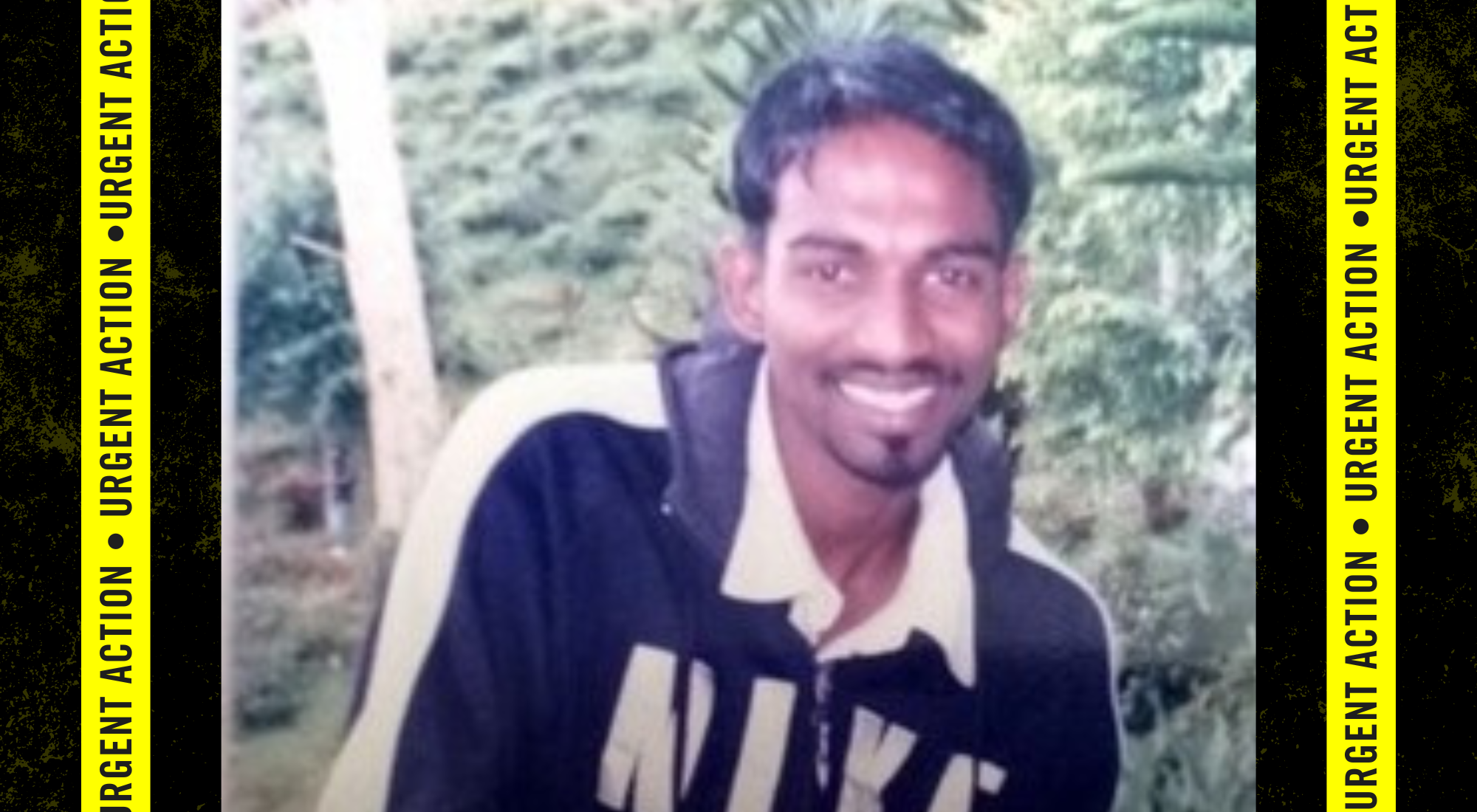Pannir Selvam Pranthaman’s appeal hearing is set for May 7. He received a last-minute stay of execution on February 19, when the Court of Appeal allowed him to file a review of his case. If his appeal is denied, Pannir could once again face imminent execution. This is the third time he has been at risk.
Pannir, a Malaysian national, was convicted in 2017 of importing 51.84 grams of heroin into Singapore. The trial judge ruled that Pannir only transported the drugs. However, because the prosecution did not issue a certificate of substantive assistance, the court sentenced him to the mandatory death penalty. Meanwhile, executions in Singapore have continued at an alarming pace. Since October 2024, authorities have hanged 12 men.
We call on the Singaporean government to immediately commute Pannir’s death sentence. We also urge Singapore to establish an official moratorium on all executions — a crucial first step toward abolishing the death penalty for good.
Here’s what you can do:
Write to the Prime Minister of Singapore urging him to:
- Immediately intervene to remove the threat of execution against Pannir Selvam Pranthaman.
- Commute the death sentence imposed on Pannir Selvam Pranthaman.
- Establish an official moratorium on all executions as a first critical step toward full abolition of the death penalty.
Write to:
Lawrence Wong
Prime Minister of Singapore
Office of the Prime Minister
Orchard Road, Istana
Singapore 238823
Fax: +65 6835 6621
Email: pmo_hq@pmo.gov.sg
Salutation: Dear Prime Minister,
And copy:
His Excellency Chin Siong Tan
High Commissioner
High Commission for the Republic of Singapore
c/o Ministry of Foreign Affairs, Tanglin
Singapore 248163
Singapore
Tel: +65 6379-8000 Fax: +65 6474-7885
Pannir Selvam Pranthaman: A life on death row
Pannir Selvam Pranthaman is a talented musician from Malaysia. While on death row in Singapore, he has written poems and songs, some of which have led to collaborations with other Malaysian artists. His latest appeal is scheduled to be heard by the Court of Appeal on May 7, 2025. If the court rejects his appeal, Pannir could face the risk of execution for the third time.
Pannir was convicted on May 2, 2017, at the age of 29, for importing 51.84 grams of heroin into Singapore. The trial judge found that Pannir had only transported the drugs, meeting the legal definition of a “courier.” However, because the prosecution did not provide a certificate of substantive assistance, the judge was required to impose the mandatory death penalty. Pannir’s ordinary appeal was rejected by the Court of Appeal on October 18, 2018.
Pannir’s first execution date was set for May 24, 2019. It was halted just one day before it was scheduled, allowing for extraordinary appeals. His second execution date was set for February 2025, but with only four days’ notice. On February 19, the night before the execution, the Court of Appeal issued a stay to allow him to file a Post-appeal Application in a Capital Case (PACC), now set for hearing on May 7.
Flaws in Singapore’s death penalty system
Since 2013, Singapore’s Misuse of Drugs Act has allowed judges some discretion in sentencing only under two conditions:
- When a person has a mental or intellectual disability that substantially impaired their responsibility at the time of the offense, or
- When the person is a “courier” and the prosecution issues a certificate of substantive assistance.
In Pannir’s case, the prosecution did not issue the certificate. As a result, the judge had no choice but to impose the death penalty. This process shifted the life-or-death decision from the court to the prosecution, violating Pannir’s right to a fair trial. It undermined judicial independence, broke down the separation between prosecution and court, and violated the principle of “equality of arms,” where both sides should have equal power before the court.
Pannir’s conviction also relied on a legal presumption of knowledge under the Misuse of Drugs Act. This law shifts the burden of proof to the accused, lowering the standard of evidence needed to convict someone in a capital case. Such presumptions undermine fair trial rights and violate the principle that everyone must be presumed innocent until proven guilty — a core principle of international law.
The urgent need for change
International law prohibits the use of the mandatory death penalty. Courts must be able to consider the circumstances of each case. Further, international standards restrict the death penalty to only the “most serious crimes” — meaning intentional killing.
Amnesty International opposes the death penalty in all cases, without exception. As of today, 113 countries have fully abolished the death penalty for all crimes, and 145 countries are abolitionist in law or practice. Yet Singapore continues to carry out executions, including for drug-related offenses, remaining among a small group of countries that still do so.
Pannir Selvam Pranthaman’s case highlights urgent, life-threatening flaws in Singapore’s justice system. His life, and the broader fight for abolition, hang in the balance.
Please take action as soon as possible until June 30, 2025. The UA will be duly updated should there be the need for further action.




























